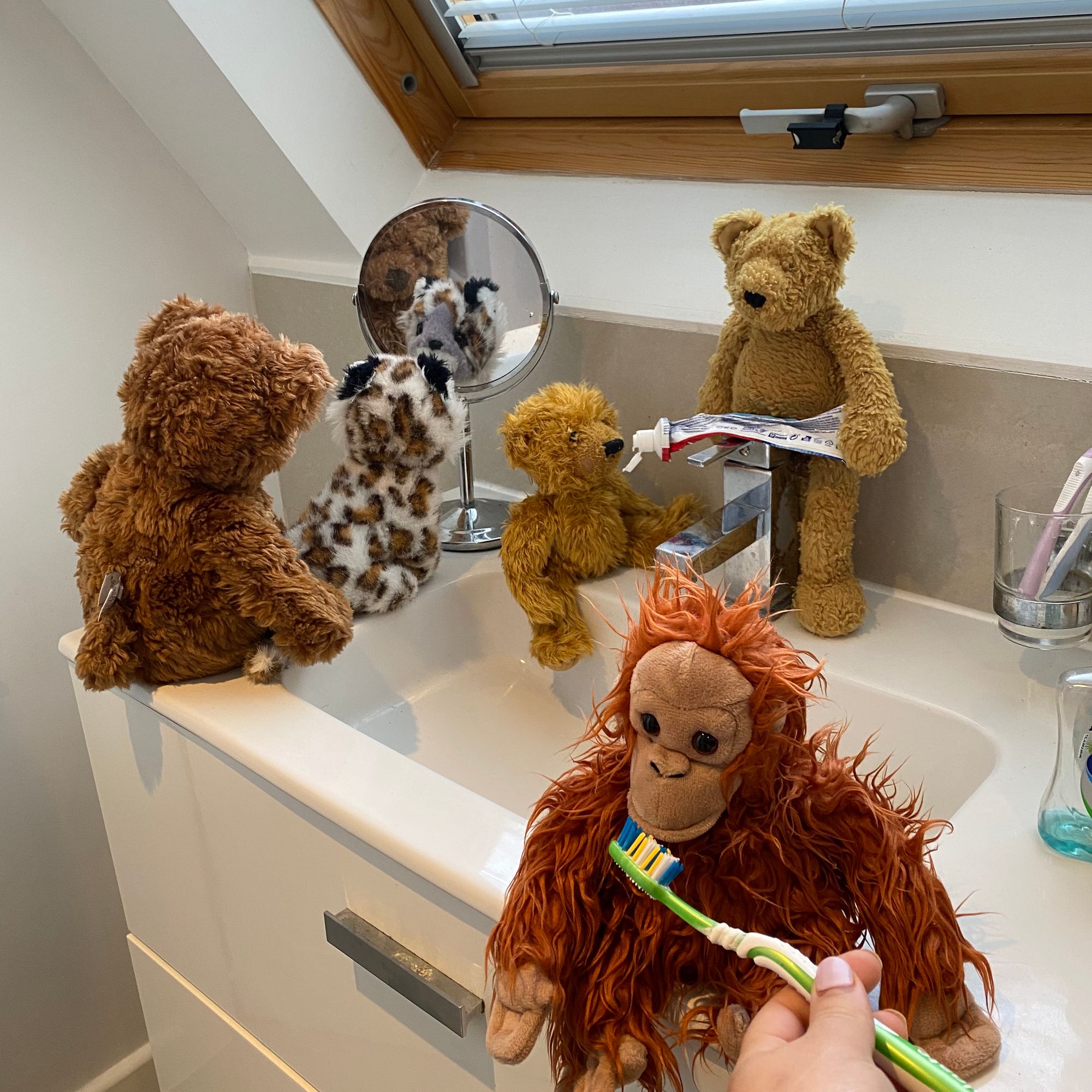Born again teddy bears
The adoption agency paving the way for change in the soft toy industry | By Chantelle Pattemore

Teddy bears: they’re a childhood mainstay, and around half of us keep hold of at least one well into our adult years. They’re big business too, with the global plush toy market valued at almost $8 billion in 2018 and predicted to grow 7% year-on-year. But, while their cute faces and huggable bodies might seem harmless, their overall life cycle tells a different story.
Some research has been conducted into the impact of plastic toys on the environment, but there’s been little exploration around the stuffed variety—even though many of the same issues arise. Vast amounts of water and energy are used and wasted in creating the textiles for their exterior lining, while their squishy interior typically comprises petroleum-formulated polyester and sometimes harmful batteries. They often travel thousands of miles to reach their final toy shop destinations and, when no longer required, are thrown away, heading to landfill sites, where the plastic-based materials take many years to decompose.
With one survey revealing around half of children grow tired of a new toy after just a week and over a quarter of parents throw away perfectly good items, that’s a whole lot of environmental impact for very little return.
There’s no denying consumers and manufacturers are becoming increasingly mindful of sustainability and environmental impact—especially in industries such as clothing, transportation and packaging. However, there is little discussion of these issues when it comes to soft toys, meaning recognition is occurring at a much slower pace.
Taking action with heart
Fortunately, Loved Before—a soft toy adoption agency based on the outskirts of London—is on a mission to change this. Founded in September 2019 by Charlotte Liebling, the agency aims to encourage sustainability in the industry and give toys a second lease of life. The initiative arose after Liebling worked in a charity shop during university, and saw the huge number of soft toys donated and how many unsellable ones are thrown into the bin. “I went home and started to do a bit of research into how big an issue this was, and how many toys were contributing to landfill,” she says. “I remember being really shocked—and decided then and there I was going to do something about it.”
An eye-opener at the time, the development of Loved Before has only served to amplify the issue for Liebling. “It’s a huge problem, and there’s very little exposure,” she states. “I’ve spoken to so many charity shops since we started, who all say they have to throw so many away. I’ve also spoken to landfill sites and tips—and some people there rescue the odd one or two, but they [also] see so many.”
Aside from solely encouraging people to buy pre-owned soft toys, Loved Before aims to “change the perceptions of what it means to be fundamentally ‘second-hand’,” Liebling explains. When a toy is donated, the owner is asked to provide its back story—allowing for sentimental memories to be passed on and affirming that pre-owned toys can have just as much value as brand-new ones.

The rapid success of Loved Before indicates that consumer awareness is on the rise. “It’s absolutely bonkers,” says Liebling, smiling. A year ago, she added around 20 new stuffed toys to the Loved Before website each week for adoption. “This Sunday just gone, we did 150,” she says, “and they usually sell out pretty quickly.” Furthermore, adoption possibilities have now extended from full-sized teddies to include miniatures, dolls, and soft toy clothing.
One of Liebling’s main challenges when starting out was sourcing toys to sell on the site—but that's no longer a problem. These days, Loved Before receives around 600 donations each week, meaning friends and family are regularly called on to help out with the toy cleaning (ramped up further since Covid struck) and packing processes. While bears remain at the agency’s cosy HQ, they’ve also had to rent a couple of commercial units for the day-to-day operations as well as storing packaging materials.
Small steps for bears, big leaps for humans
But Loved Before can't go at it alone. As Liebling says: “I feel like we’re a little voice at the moment that’s trying to be a big voice in a space that’s not listening sometimes.” Thankfully, some other small businesses are also encouraging consumers to make more conscious choices. For example, toy hospitals (such as the Leith Toy Hospital in Scotland, Soft Toy Hospital in Singapore and The Doll Hospital in Lisbon) repair and clean stuffed toys and dolls so they don’t have to be thrown away. Meanwhile, The Teddy Trust collects pre-loved toys to send to in-need children in countries such as Syria, Iraq and South Africa.
However, the more prominent soft toy brands are yet to step up—so it might be down to smaller initiatives to educate consumers. Liebling says that many of Loved Before’s donators are aware of the issues around sustainability but believes education at a young age is key to encouraging positive reform.
“We do work in schools. It’s [about] teaching sustainable attitudes and a different way of looking at the world, through the medium of bears,” she explains. “We’re not going to solve climate change just through soft toys, but hopefully we can teach things through [them] that create bigger movements.”
Written by Chantelle Pattemore (@journochantelle)
Images courtesy of Loved Before
Please consider supporting our journalism: https://www.paypal.com/donate?hosted_button_id=FFQ2VNZ6Z6BYG

